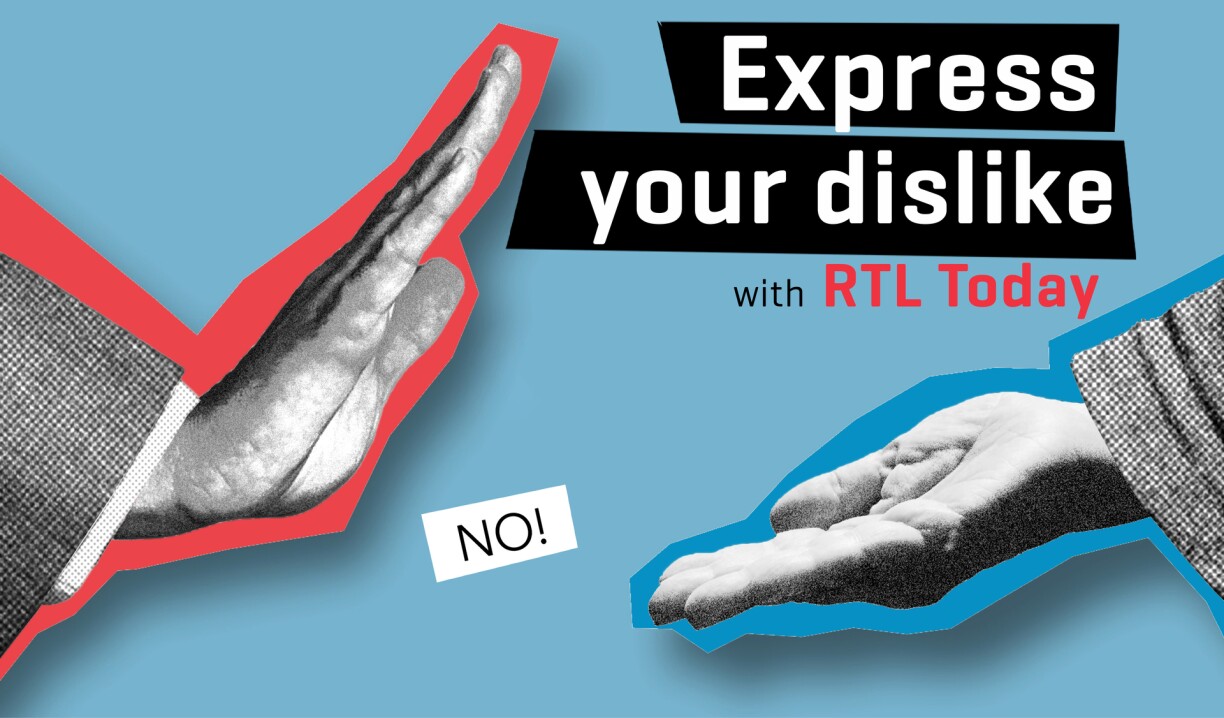
Hello and häerzlech wëllkomm to yet another Luxembourgish Lesson! In our last lesson, we talked about what we like and appreciate in our lives, and we all had a wonderful time (presumably). However, we can’t teach you how to say that you like something without then also teaching you how to do the opposite: That’s right, it’s time for a rather grumpy lesson as we discover how to express dislike, disapproval, and even hatred in Luxembourgish.
But it’s not all negativity and complaining today! We also have another Language Basics article for you to check out, a deep dive into the *very* riveting topic of grammatical cases.
In the last lesson, we learned that we can express the English verb ‘to like’ by combing a verb with the adverb gär in Luxembourgish. As a quick reminder, if the thing we like is an action, we simply add gär to that verb (I like cooking à Ech kache gär) and if the thing we like is an object or person we use the verb hunn (I like this film à Ech hunn de Film gär).
Knowing this, saying that we dislike something becomes quite easy as we simply have to negate the sentence. To do this, we use the equivalent of the English ‘not': net
I like it → Ech hunn et gär
I don’t like it → Ech hunn et net gär
net always precedes gär. Here are some more example sentences:
We don’t like queuing → Mir stinn net gär an der Schlaang (literally: ‘We don’t like standing in the queue’)
You (singular) don’t like beer → Du hues Béier net gär
They don’t like cycling → Si fueren net gär mam Vëlo (literally: ‘They don’t like driving with the bike’)
He doesn’t like cooking → Hie kacht net gär
Good to know: In Luxembourgish, the word for ‘snake’ and ‘queue’ is the same: Schlaang.
We should also point out that there is no direct translation for the verb ‘to dislike’ – but there are some other ways that you can express your disapproval and we’ll get to those shortly.
You may also remember that we learned a second way to express approval in the last lesson, namely by using the verb gefalen (‘to please’)
I like it → Et gefält mir (‘It pleases me’)
I don’t like it → Et gefält mir net(‘It does not please me’)
If we use gefalen in the Present tense, the net always comes at the end of the sentence. Let’s look at some more examples to illustrate the concept:
I don’t like this book at all → Dat Buch gefält mir iwwerhaapt net
We don’t like this couch → Dës Couche gefält eis net
She doesn’t like this colour → Dës Faarf gefält him netIn contrast to the verb ‘to love’ Luxembourgish actually has a direct equivalent for the verb ‘to hate': haassen. It is a regular verb and you can translate it directly from English:
I hate that → Ech haassen dat
Similar to English, we should keep in mind that ‘to hate’ is quite a strong feeling and we should avoid using it excessively.
This is awful → Dat ass fuerchtbar
I won’t do it → Ech maachen et net / Ech wäert et net maachen
What a load of rubbish → Wat fir ee Blödsinn
This makes my blood boil → Dat mëscht mech schwäirosen (literally: “This makes me pig-angry”)
Get lost! → Klibber mech!
What an idiot → Wat fir een Topert / Idiot
I can’t stand him / her → Ech kann hien / hatt net leiden / ausstoen
He really gets on my nerves → Hie geet mir richteg op de Su (literally: “He really gets on the coin”)
Lesson 1 – How to introduce yourself
Lesson 2 – How to talk to your neighbour about the weather
Lesson 3 – How to ask for directions
Lesson 4 – How to tell time and dates
Lesson 5 – How to schedule a meeting
Lesson 6 – Chat with the cashier at the supermarket
Lesson 7 – How to order at cafés and bakeries
Lesson 8 – How to decipher a menu and order food
Lesson 9 – How to talk about your family
Lesson 10 – How to ask for medical assistance
Lesson 11 – How to talk about past experiences
Lesson 12 – How to talk about your plans for the future
Lesson 13 – Holidays and travelling
Lesson 14 – How to say that you like something